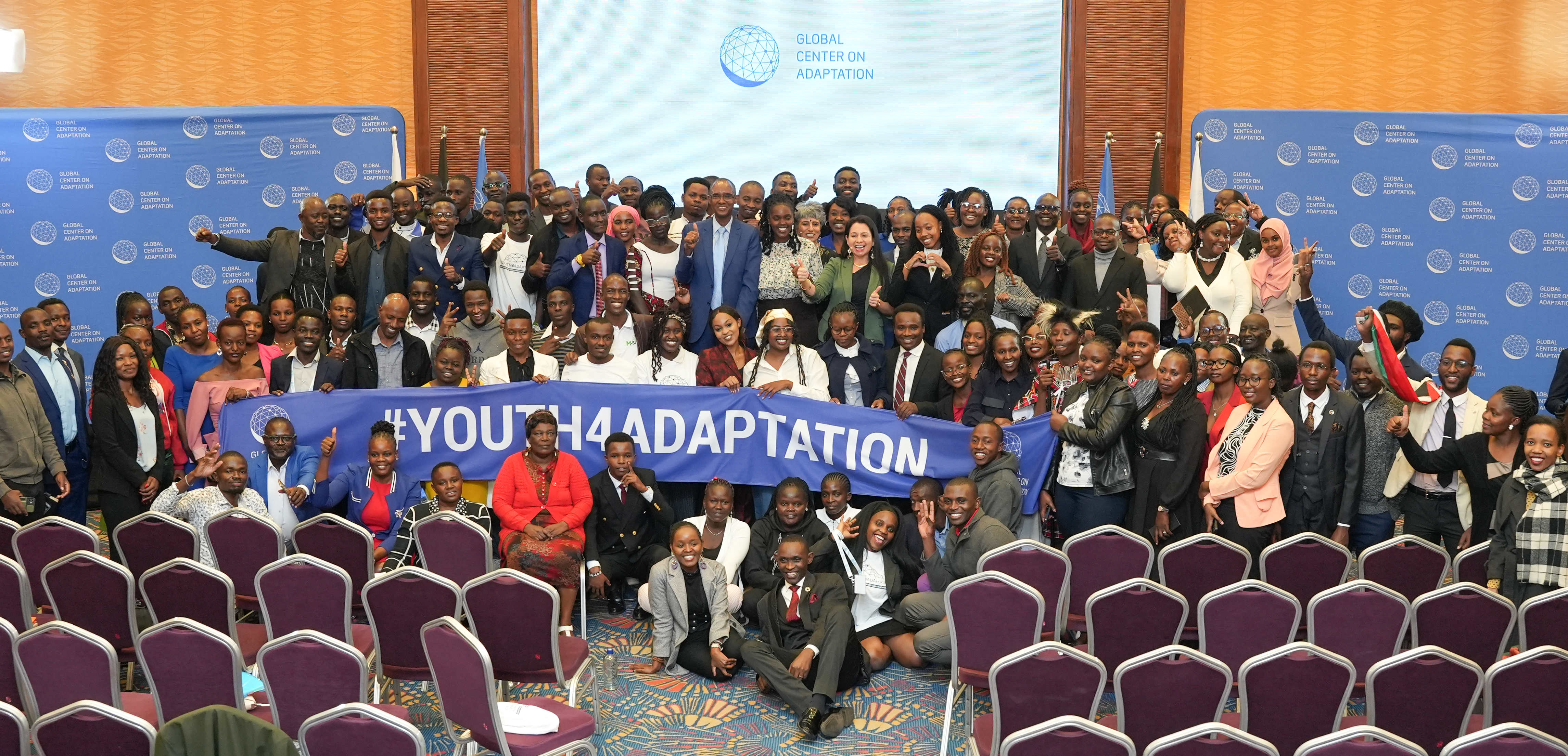
Nairobi, Kenya, 9 July 2025 – The critical role of youth in supporting their informal settlements in Homa Bay County, Kenya, to develop an inclusive and climate-resilient municipal development plan was emphasized during a High-Level Intergenerational Dialogue on Accelerating Adaptation organized by the Global Center on Adaptation (GCA) in Nairobi, Kenya on 9 July 2025.
The event brought together youth representatives from Homa Bay County, where GCA is supporting a People’s Adaptation Plan, with H.E. Macky Sall, Chair of the GCA’s Supervisory Board; H.E. Ban Ki-moon, Honorary Chair of GCA’s Supervisory Board; H.E. Gladys Wanga, Governor of Homa Bay; H.E. Ali Mohamed, Kenya’s Special Climate Change Envoy; and Professor Patrick V. Verkooijen, President and CEO of GCA.
The planning process in Homa Bay County, which was facilitated by GCA’s local partner Akiba Mashinani Trust (AMT), will inform future investments in the County, including through the African Development Bank’s Kenya National Urban Water Supply and Sanitation Program.
“We must engage in climate smart development planning that addresses today's climate risks, while safeguarding the lives and livelihoods of generations to come,” said Governor Wanga at the event. “It is with this conviction that we launched what we believe is Kenya's first climate resilient, locally led municipal Physical and Land Use Development Plan, known also as the locally led People's Adaptation Plan.”
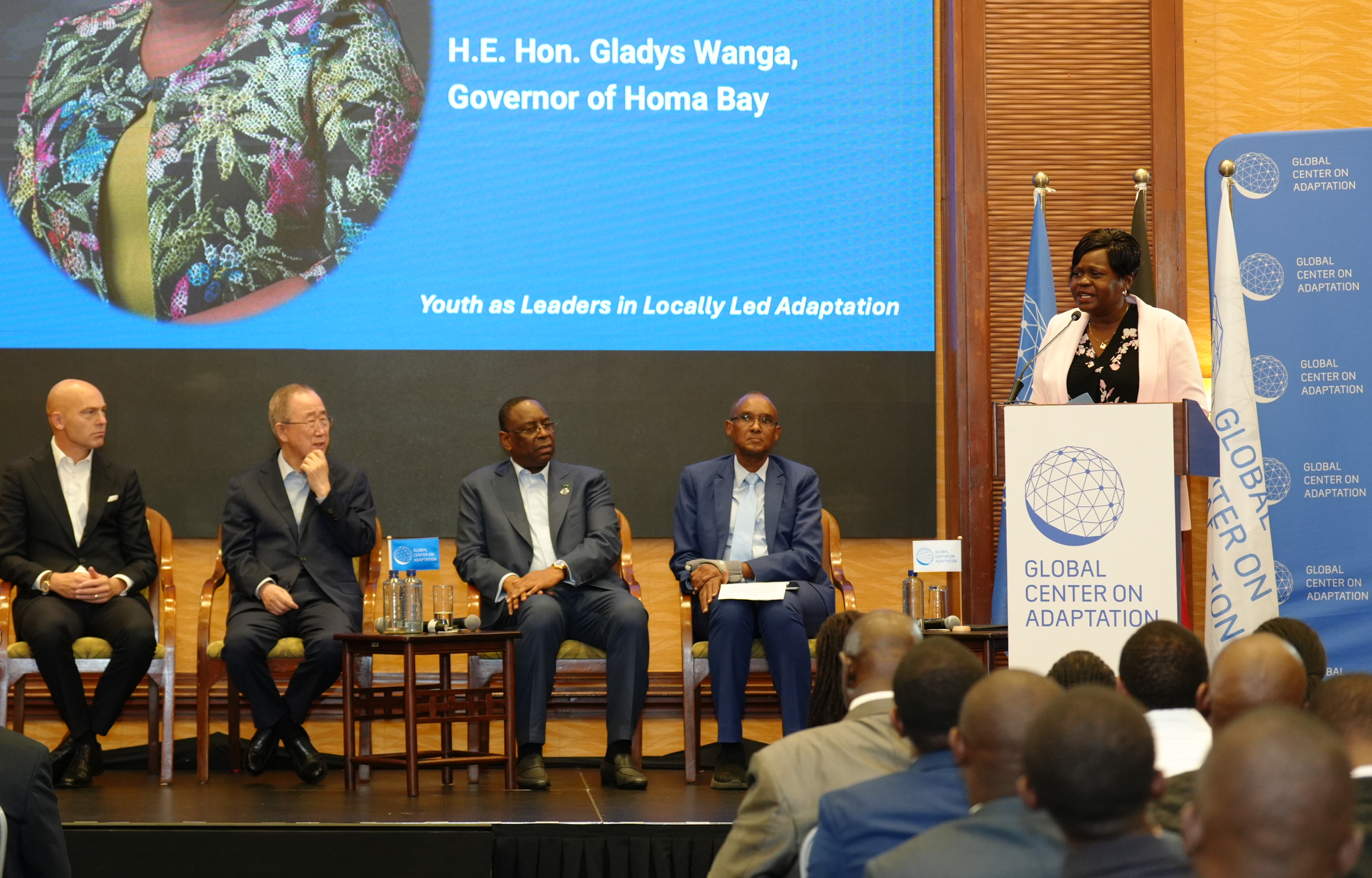
H.E. Gladys Wanga, Governor of Homa Bay, delivering keynote remarks
“What makes this process truly groundbreaking is that it put the poorest and most vulnerable communities, including youth and women, at the center. We did not speak for the people. We worked with them to define their vision of a climate resilient future. We are now in the final stages of this landmark plan and will soon present it to the County Assembly of Homa Bay for approval.”
To support the locally led planning process, 382 young people from the informal settlements were trained in mapping, numbering, and collecting data on climate vulnerability using GIS-enabled tools. 20 county officials and 40 students from the local Tom Mboya University were also trained in digital and geospatial tools and data analysis, and 23 students were embedded in county offices as interns.
These young people gathered data from 21,317 households on socioeconomic conditions and climate vulnerabilities, while explaining climate change and engaging households in the planning process.
This step was crucial in capturing qualitative and quantitative data, and in mobilizing the community to engage in the planning process.
The importance of household enumeration in climate-resilient urban planning cannot be overstated. It serves as the foundation for evidence-based decision-making, identification and inclusion of the most vulnerable households, targeted policy interventions, accuracy in service delivery planning, and the targeting of scarce investments to those most in need. It helps to identify at-risk populations, such as informal workers with livelihoods at risk, and women-headed households, enabling responses that prioritize their needs.
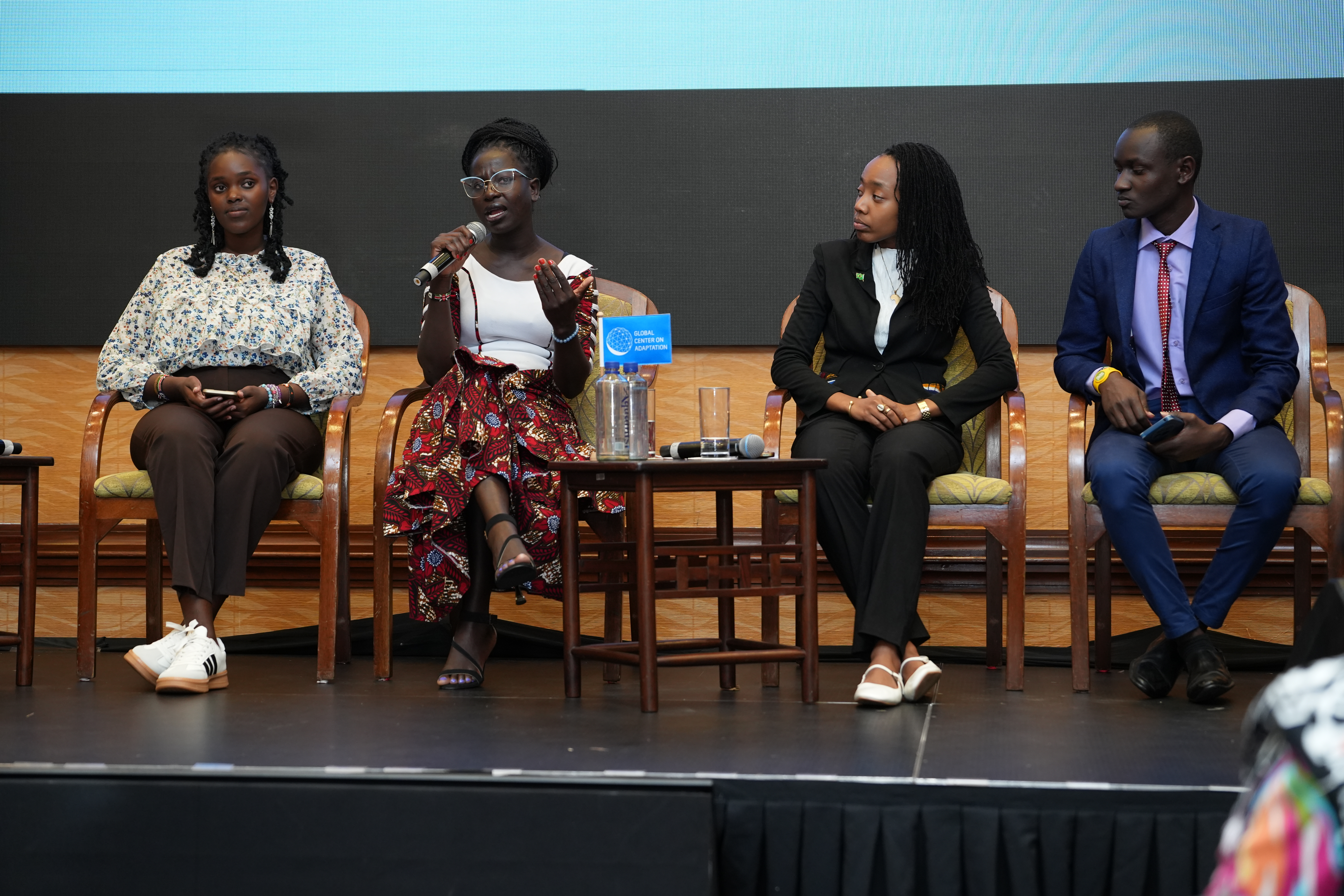
“In Homa Bay, we’ve proven that youth-led solutions are not just possible –they are already working,” said Phabian Adienge, one of the young people from Homa Bay municipality who was trained as a community mobilizer. “We were trained as mappers, enumerators, and climate co-researchers. Community youth went door-to-door in underserved settlements like Sofia and Makongeni collecting real data on flood exposure, drainage problems, waste buildup, and lack of services.”
“We combined mobile tools, local knowledge, and lived experience of climate change. We worked with university students to translate that field data into digital maps and risk layers using GIS. This partnership between community youth and student mappers created an ecosystem of innovation that turned the informal settlements into visible, mappable, and plannable spaces. This is locally led adaptation in action. It’s community owned. Youth-driven. And it’s deeply grounded in both evidence and empathy.”
If we want real climate resilience, we have to rethink what expertise looks like. It’s not always behind a desk or on a white paper. Sometimes, it's a 22-year-old in Sofia with a smartphone, using it not to chat but to map flood-prone homes so her neighbors can be seen, counted and protected.
“Through this process, we were trained in GIS, spatial data management, and mapping—skills that allowed us to transform raw, community-collected data into powerful planning tools,” said Damaris Wankiju, a student of Tom Mboya University which supported the planning process. “We digitized building outlines, compiled datasets, and linked them to formal planning systems. But this was more than just a technical exercise—it was a transformational experience. It brought to life a core principle of LLA: that effective adaptation must be rooted in the lived realities of local people.”
“This was not learning for the sake of learning—it was learning by doing, in service of our communities. We understood, firsthand, how adaptation must be built from the ground up—guided by local knowledge, validated by academic research, and delivered by those who live closest to the risks.
As youth, we were not only supporting the process—we were growing through it. We’re now equipped with practical, context-specific skills that make us active contributors to adaptation efforts. We are not just students in classrooms—we are local experts in the making, ready to implement and scale community-led solutions.”
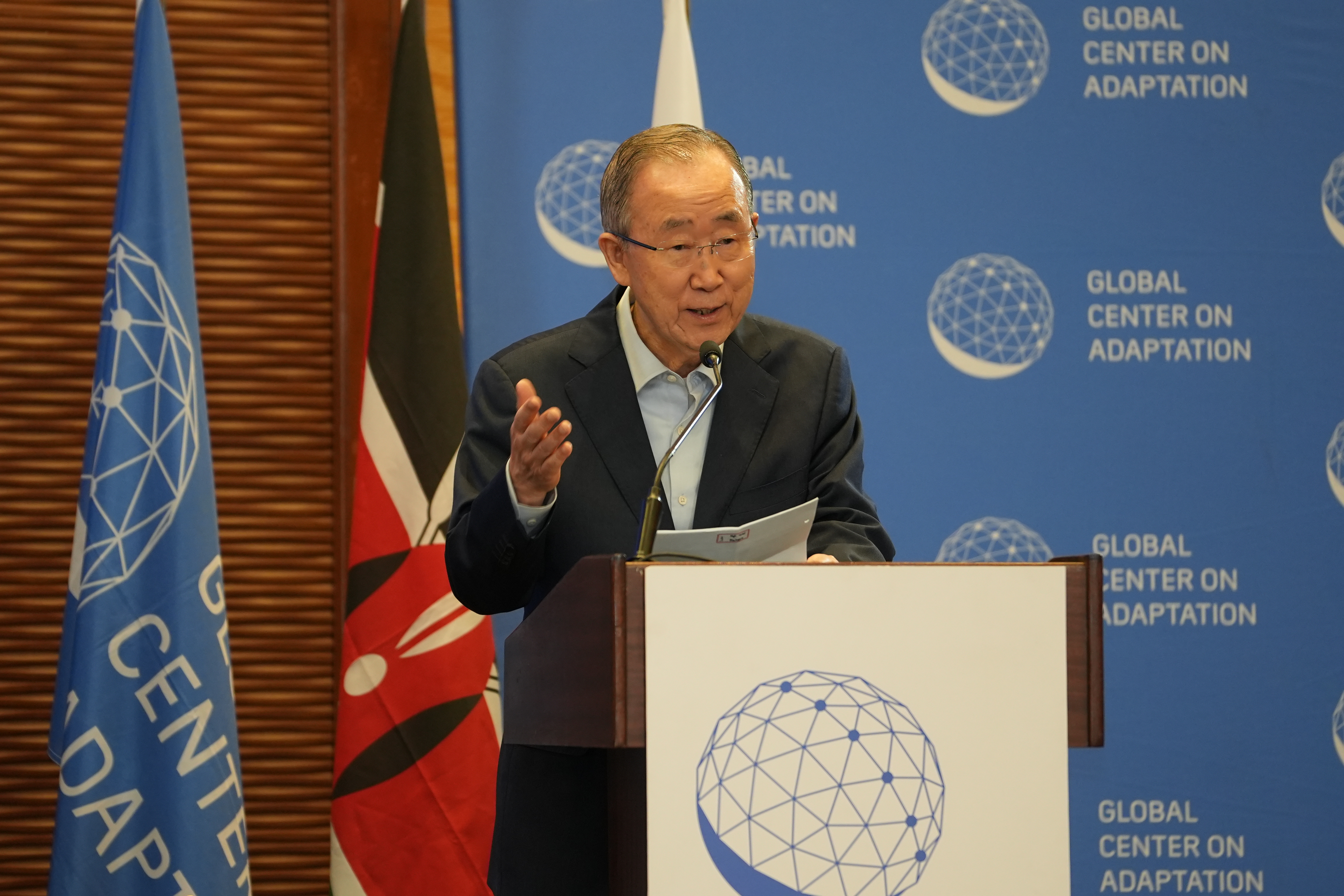
H.E. Ban Ki-moon, 8th Secretary-General of the United Nations and Honorary Chair of GCA’s Supervisory Board
In his keynote remarks, Ban Ki-moon praised the young people present and called for investment in adaptation education so that young people can be empowered as agents of change.
“Africa’s future is being written by its people—by the young people of Homa Bay, and by young leaders like you. You are not the leaders of tomorrow. You are the heartbeat of today,” said President Macky Sall, reflecting on the partnership between the African Development Bank and GCA, which helped unlock US $1 billion in climate finance in Kenya through the Africa Adaptation Acceleration Program.
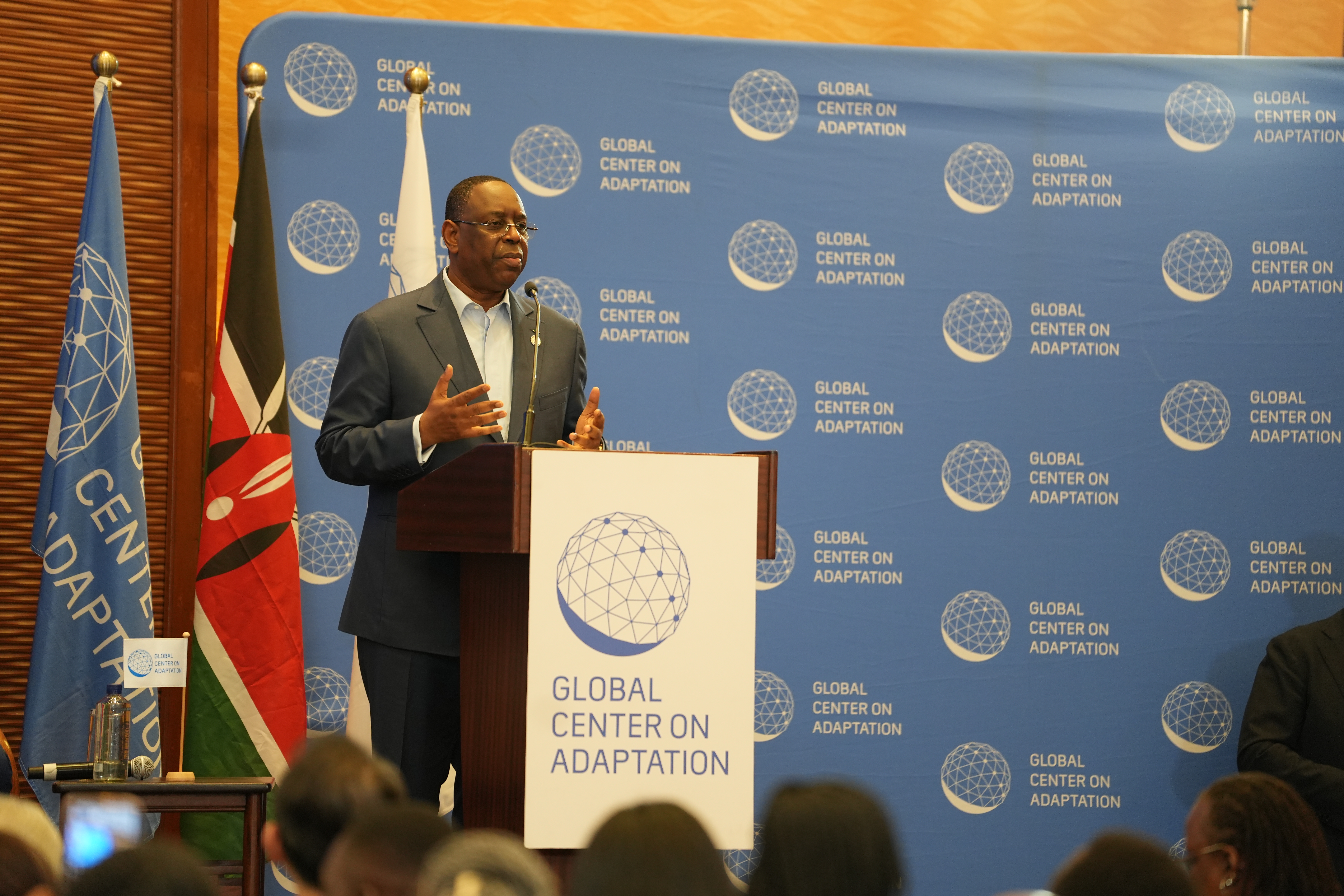
H.E. Macky Sall, President of the Republic of Senegal and Chair of GCA’s Supervisory Board
“Empowering young people with the skills, opportunities, and leadership platforms they need is not just an investment in jobs—it’s an investment in resilient communities and a thriving green economy,” said Professor Verkooijen, emphasizing the transformative power of youth-led solutions. “When youth are equipped to innovate and lead, they transform challenges into employment, drive sustainable growth and become architects of our shared future.”
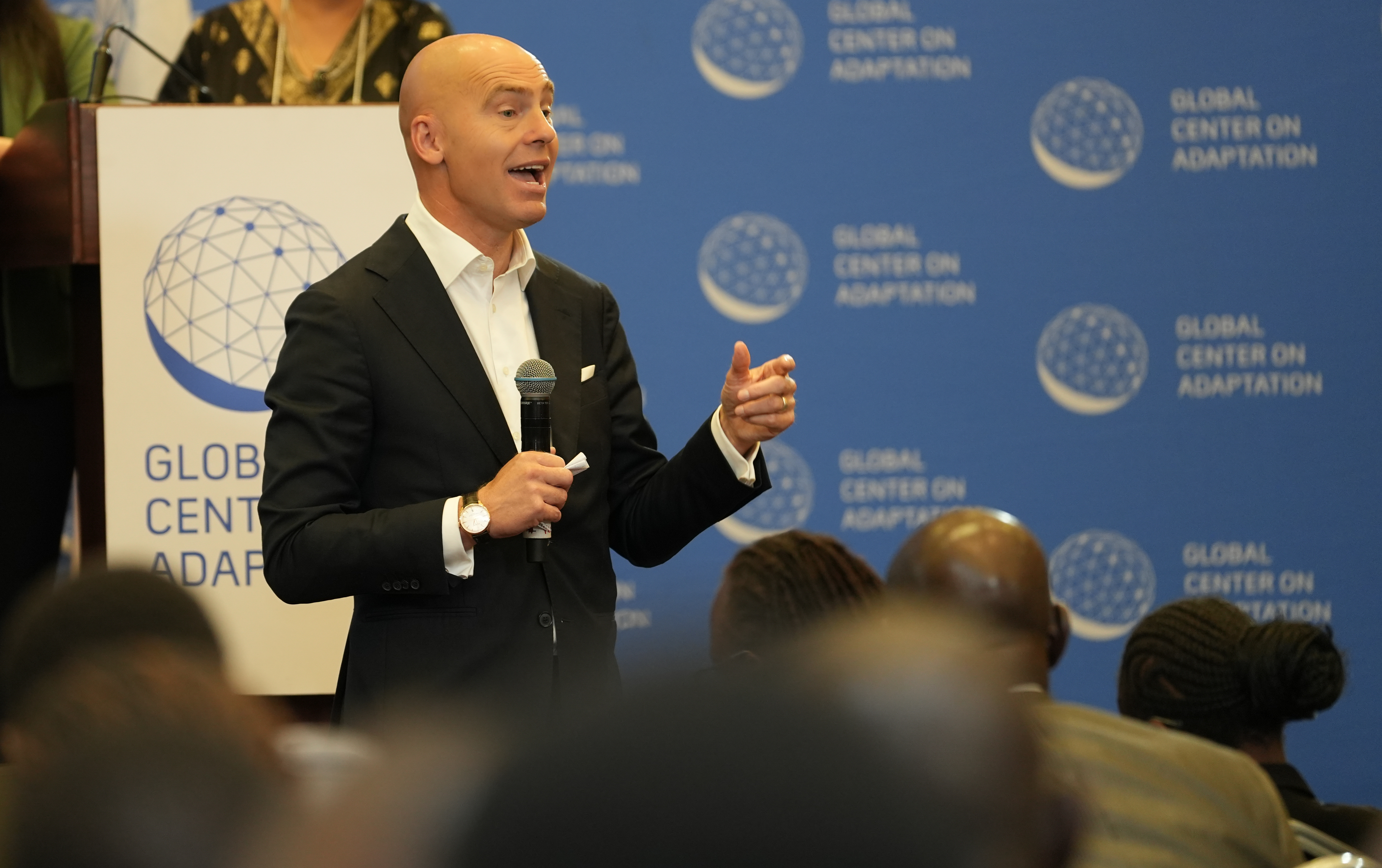
Professor Patrick V. Verkooijen, President and CEO of GCA
The participants agreed to carry the voices of informal settlements and rural communities into international policy forums, ensuring that the next phase of the Africa Adaptation Acceleration Program builds on today’s momentum.